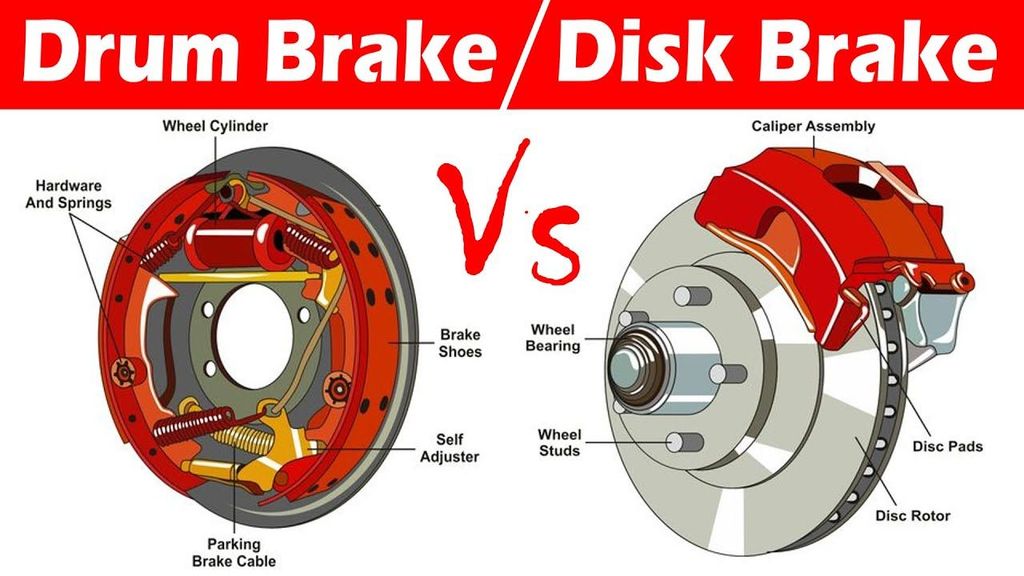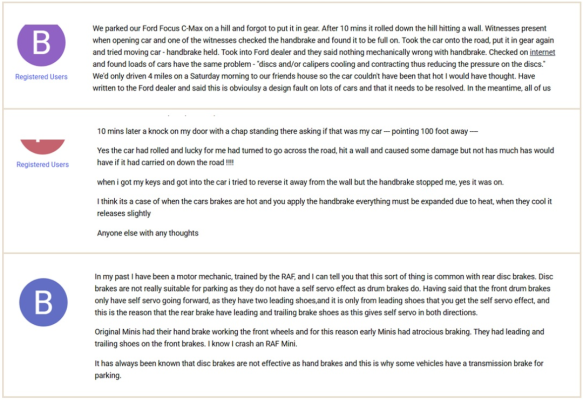100% behind you there Pontoneer and my lovely old dad taught me the same, he also said that when ever you start up the car, put the clutch in, bearing in mind there was no chance of us having an automatic back in them there good old days.
So then, what's all this about: "as discs cool they shrink and the handbrake loses grip - I have seen first hand vehicles rolling away as the handbrake loses grip when discs cool - that is why Mercedes-Benz have drums for the parking brake , because as the drum shrinks , the grip tightens rather than loosening"??? Now that really piqued my interest and I have been learning about the brakes on our lovely jalopies so I have.
When considering the handbrake efficacy, it certainly makes sense to me that there could well be shrinkage in the small surface contact of the pads upon cooling, which might be sufficient enough to loosen their grip and culminate in a fail, whereby the gravitational force and weight of a car parked on a hill might be enough to cause it to move down the said hill.
View attachment 172164
It also make sense to me that as you say with parking brakes that are drum brakes, upon cooling, the drum itself will shrink and therefore close down for want of a better expression, onto the shoes/lining inside it.
View attachment 172162
I understand from what I have read so far that as far as handbrakes go, the drums provide a stronger and better option than the discs, which are much better for faster stopping at speed, and you can get motors with front disc brakes and rear drum brakes and the rear hand brake incorporated into the rear drum and so it goes on.
Braking systems are crucial components in any vehicle, responsible for slowing down or stopping its motion safely and effectively. Among the various types of brakes, drum brakes and disc brakes are the two most common and widely used systems.

automotiveitnews.org
Advantages of Drum Brakes
Parking Brake Integration
Drum brakes can easily incorporate a parking brake mechanism within the same assembly, providing a convenient and space-saving solution for vehicles that require a dedicated parking brake system.
Cost-effectiveness and Simplicity
Good Braking Power at Low Speeds
Environmental Protection
Advantages of Disc Brakes
Superior Braking Performance
Excellent Heat Dissipation and Fade Resistance
Better Braking Modulation and Control
Good Wet Weather Performance
Low Maintenance Requirements
I found lots of interesting discussions about the hot-to-cold shrinkage of handbrake discs and failings and put together a few in support of your view on the subject, and I'm sure if I keep looking there will be many more out there sharing their experiences and thoughts too.
Hi I bought an 04' car in Sept last year. Within weeks my reverse park sensors failed and I booked a date so that garage could collect my car, from work, to take away for repair (I also wrote on his jobcard that the handbrake needs to be looked at because it comes up quite far). He then got into ...

www.consumeractiongroup.co.uk
View attachment 172165
View attachment 172166
View attachment 172167







